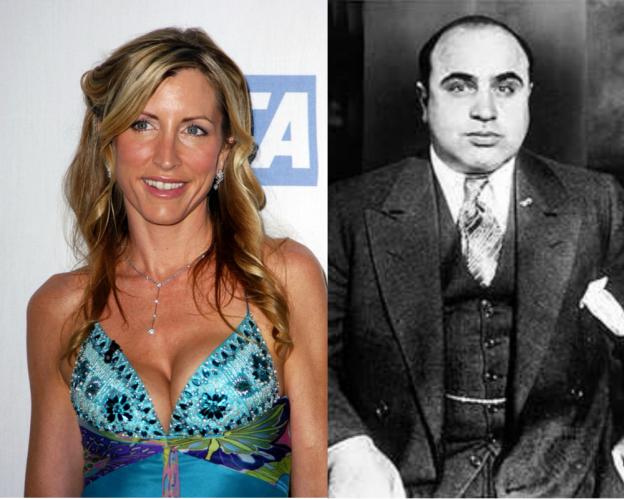Probably the best self-help book ever written is ‘How To Win Friends And Influence People’, by Dale Carnegie. It was the forerunner to so many other books, courses and tape programmes, and although the language used now seems a little archaic, its underlying messages are as relevant today as they ever were.
If you haven’t read it, do it now. You won’t be disappointed.
Anyway, one of the quotations that always sticks in my mind from the book, comes from Al Capone (that gives you some idea how long ago it was written) when he says:
“I have spent the best years of my life giving people the lighter pleasures, helping them have a good time, and all I get is abuse, the existence of a hunted man.”
Yes, that’s the notorious Chicago gangster, Al Capone – the man responsible for more murder and mayhem than anyone else in his era. And yet he didn’t condemn or blame himself for anything. In fact, he saw himself as a public benefactor – somebody doing good for his fellow man, and not being appreciated for it ~ someone wronged and misunderstood.
For some reason, I found myself thinking about Al Capone as I watched Heather Mills descend the steps following the close of her divorce case with Paul McCartney. She proceeded to present a version of events that was completely at variance with the facts as they were revealed in the full report on the judgement, which was published the next day.
And you just knew that despite all the evidence to the contrary, she believed that she was ‘in the right’. Like Capone, she believed herself to be someone wronged and misunderstood. And no amount of exposure to the bare facts would sway her from that view.
And to a greater or lesser extent, most of us are like Mills and Capone. We have a high capacity for self-justification, and are remarkably resistant to evidence or persuasion that we are wrong, or in some way to blame for events.
You may have noticed that I spend quite a lot of time, attempting to dissuade you from one course of action, and move you towards another. In the course of that, I’m being critical of what you’re currently doing and laying the blame (if indeed there’s anything for you to be blamed for) right at your door.
Now I know you’re resistant to any suggestions I might make, and I also know you’re defensive in the face of criticism. But it’s for your own good, for goodness sake! And that’s why I do it.
But…and here’s the thing…
If I was trying to sell you something, it would be foolish of me to point out your shortcomings, your failings and your errors. It would be silly of me to point out that in all likelihood, if you have problems that need solutions, it’s your own fault. You’re to blame.
Why? Because you’d reject my criticism, and reject what I’m offering at the same time. I don’t mind you rejecting what I say in this book (other than for the fact that I’m right, and you’d do well to listen!) because it doesn’t cost me anything, but if you reject what I say in an advertisement or sales letter, you reject my product.
You miss out on a great product and I miss out on the purchase price!
And it’s exactly the same for you…
Your customer doesn’t believe he’s to blame for anything, so why antagonise him by suggesting that he is? He believes he’s been misunderstood, unlucky, misinformed, exploited, conned, tricked and misled in the past. He takes comfort in the fact that it wasn’t his fault. So why swim against the tide?
Agree with him, sympathise with him, and then move on to explain how what you’re selling will solve the problem he’s now facing. That way, you get him on your side from the start, rather than raising his hackles and switching him off.
Isn’t this a little manipulative?
Maybe, but it brings the ideal end result of a win-win situation that much closer, so it’s certainly justifiable. A little manipulation can be justified, I think, just so long as it benefits both parties rather than one at the expense of the other…Or maybe that’s just me doing a Capone-Mills!
I’ll leave you to decide for yourself.

John Harrison
PUBLISHERS NOTICE



